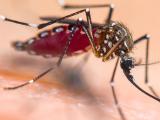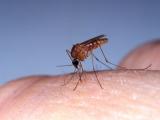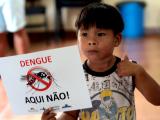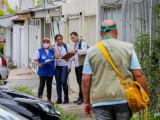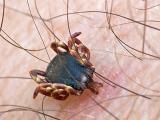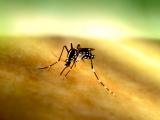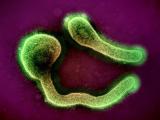Aug 9, 2010 (CIDRAP News) The National Institute of Allergy and Infectious Diseases (NIAID) has launched a clinical trial of a dengue virus vaccine, a product that eventually may help prevent a disease to which 2.5 billion people are exposed.
The launching of a trial at the Johns Hopkins Bloomberg School of Public in Baltimore and the University of Vermont in Burlington follows more than a decade of development, the NIAID said in a press release.
The phase 1 trial will assess the safety and immunogenicity of the vaccine in healthy adults between the ages of 18 and 50, the agency said. Full testing of the vaccine will take several years.
The announcement comes in the wake of recent dengue cases in Florida and unusually large epidemics of dengue fever in Latin America and the Caribbean. Florida officials last week reported a rash of dengue cases in state residents amid concern that the disease will gain a foothold in the state.
The NIAID said 2.5 billion people in more than 100 tropical and subtropical countries are at risk for the mosquito-borne disease. About 50 million to 100 million people are infected annually, leading to about 25,000 deaths. There is currently no vaccine and no specific treatment.
NIAID Director Anthony Fauci, MD, called the launch of the clinical trial an important milestone. "With increasing infection rates and disease severity around the world and the discovery of dengue in parts of Florida, finding a way to prevent dengue infection is an important priority," he said.
The experimental vaccine is tetravalent, or designed to protect against all four dengue serotypes (types 1 through 4), the NIAID said. A person needs antibodies against all four serotypes to be fully protected. Having antibodies to only one or some of the serotypes may be worse than having none, because this puts one at risk for the severe form of the disease (dengue hemorrhagic fever) if infected by another serotype, the agency noted.
Stephen S. Whitehead, PhD, and Brian Murphy, MD, of the NIAID tested seven monovalent vaccines to identify the best four to use in the new vaccine, according to the announcement. The vaccines use live attenuated (weakened) viruses.
The NIAID said three different combinations of the four candidate vaccines are being tested. One of the formulations is being evaluated at Johns Hopkins and a second at the University of Vermont; a test of the third version will begin soon at Johns Hopkins. In each case, study volunteers who have never been exposed to dengue are being assigned to receive the vaccine or a placebo.
"After determining which tetravalent vaccine is most promising, the researchers will test that candidate in a trial in a new group of volunteers in Brazil, where dengue has become highly prevalent," the NIAID said.
Later, a phase 2 trial will compare effects of the vaccine in people who have been exposed to dengue and those who haven't and will assess the need for a booster dose. If those trials go smoothly, the final stage of testing could begin in 3 to 4 years, Anna Durbin, MD, leader of the Johns Hopkins study, said in the release.
Two months ago the Centers for Disease Control and Prevention reported that the number of dengue cases in Americans returning from abroad has increased sharply in recent years, reflecting larger epidemics abroad and increased monitoring in the United States.
See also:
Aug 9 NIAID press release
http://www.niaid.nih.gov/news/newsreleases/2010/Pages/denguevaxtrial.aspx
Jun 17 CIDRAP News story "More US travelers bringing dengue virus home"
http://www.cidrap.umn.edu/cidrap/content/bt/vhf/news/jun1710dengue.html
